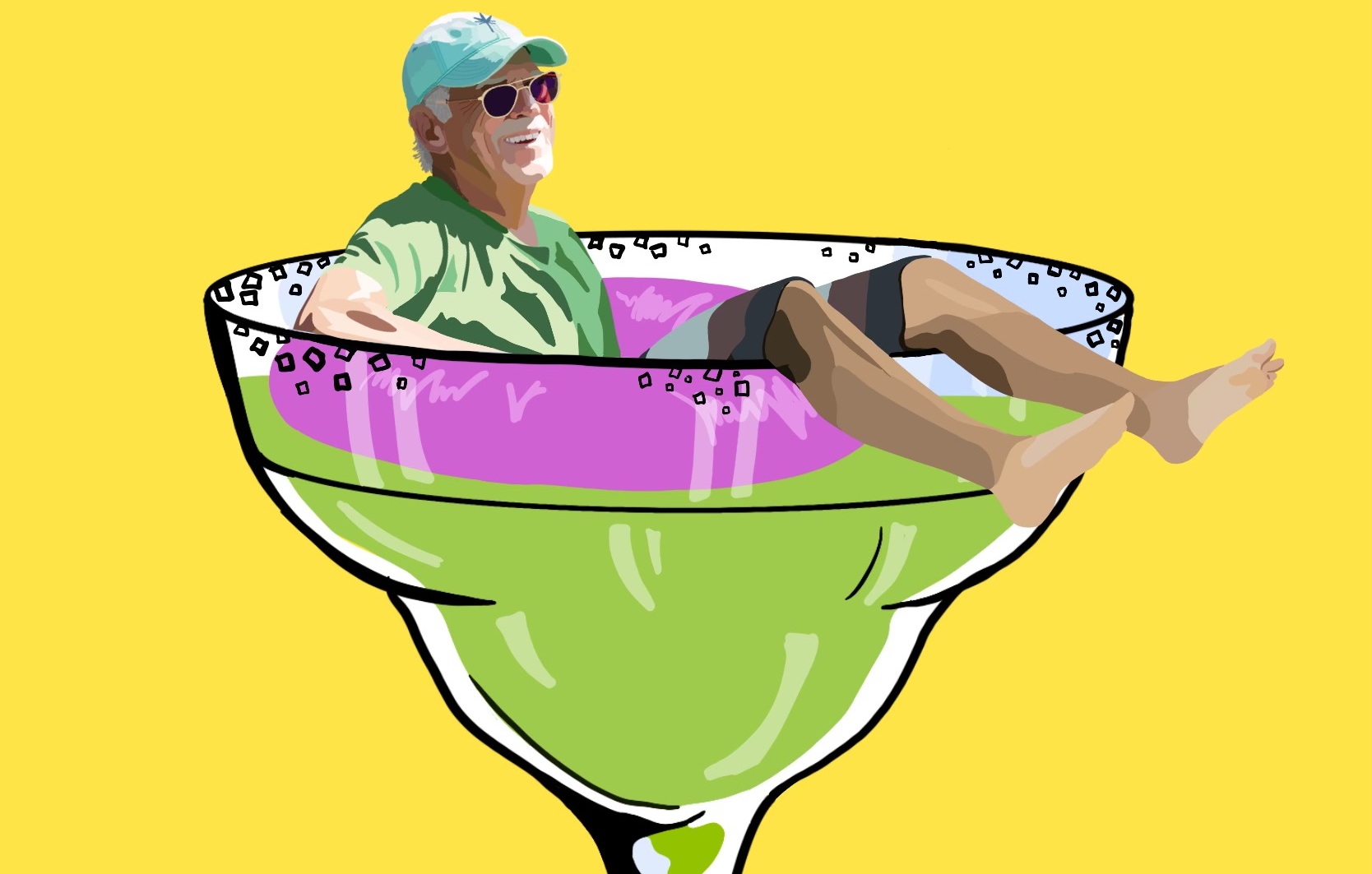For some time, country music has struggled to balance pageantry and authenticity. Between the rhinestone-clad pop country icons of yesteryear and their jaded outlaw country contemporaries, the struggle between theatrical escapism and authenticity was quite apparent in the 70s country landscape. Amidst all the noise, however, one voice from the gulf coast asked us all why we couldn’t have both. Born in Pascagoula, Mississippi, and raised in Mobile, Alabama, Jimmy Buffett laid claim to his very own country music fantasy: one that left behind arid Texas deserts, clammy prison cells and dimly lit barrooms for a sunny paradise of parrots and palm trees. Buffett invited listeners to trade their tears and rotgut whiskey for smiles and margaritas. On that note, who needs steel guitars when you have steel pans? Buffet’s music eschewed typical country twang in favor of a bouncy, tropical soundscape that toed the line of soft rock aesthetics (largely courtesy of his legendary band, fittingly named the Coral Reefers.) Needless to say, it was a winning formula.
For the uninitiated, Buffett’s tales of flip-flops, pop-tops, latitudes and attitudes seem to border on self-parody. But don’t be mistaken– the gulf coast iconoclast sold his lifestyle extraordinarily well, attracting legions of self-proclaimed “parrotheads”– all In spite of the fact that said lifestyle was, per Buffett himself, total fantasy. As far as I am concerned, however, this fantasy is about as authentic as country music gets. For one, it was, for a time, Jimmy Buffett’s honest-to-God way of life. In the early days of his success, Buffett spent much of his time after tours on a sailboat, drinking margaritas and maybe smoking a “coral reefer” or two. In time, the Margaritaville fantasy grew into a billion dollar entertainment empire comprising hotels, cruises, restaurants and even blenders.
Of course, at that point, Buffett was as much an entrepreneur as a musician. Gone were the long months of beach bumming and boat lounging for the parrot prince, spelling an end to the autobiographical authenticity that country diehards hold as the gold standard for songwriting. But for me as a gulf coast kid growing up, the man might as well have been testifying under oath. If my childhood was to be scored like a film, Buffett’s lower Alabama anthem “Bama Breeze” might as well be the intro track. Though written about the Gulf Shores bar Flora-bama, I nevertheless found myself in the verses. In fact, “Bama Breeze” was the unlikely beginning to my life as a lyricist: my younger self amended the song’s opening verses to include “At the Bama Breeze, you can tee-tee there,” because well, at age 3, peeing in beach water is not really a point of embarrassment. In hindsight, I would contend that my lyrical revision reflected Buffett’s musical ethos pretty well. After all, the central virtue of the Buffett lifestyle– and by extension, gulf coast leisure– is the art of simply letting go. It’s an exercise in live-and-let-live.Country stars, rappers, and rockers alike have a habit of romanticizing the buzz of life in the fast lane. Jimmy Buffett advocated for the exact opposite. Buffett’s music extolled the virtues of slowing down, sitting down for a while, and just existing for a bit– like a sailboat, simply letting the wind and the waves control your course. Whether I was sitting in the Lulu’s sandbox pretending to be a hermit crab or watching my parents fry fish on St. George Island vacations, the spirit of Jimmy Buffett defined much of my childhood. And though he may no longer be with us, in the least trite way possible, his spirit lives on every time we remember to let go, feel the breeze, and let the gulf water wash over us. That, in my personal opinion, is about as authentic as music gets.
Featured graphic by Sadie Karr

